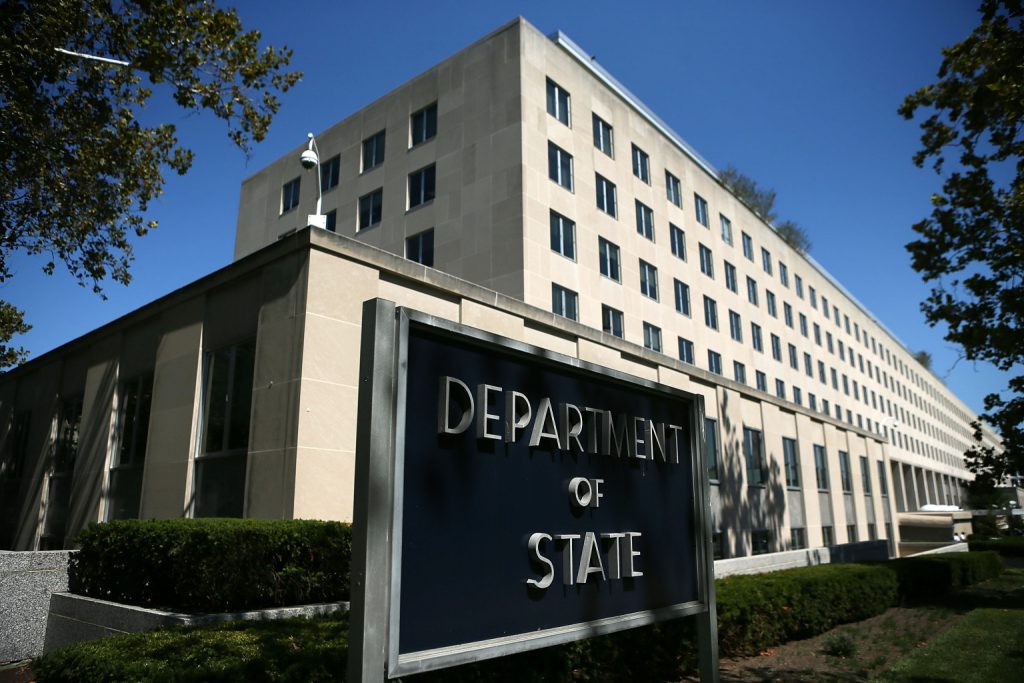U.S. State Department: Government of Georgia fully meets the minimum standards for the elimination of trafficking

The Government of Georgia fully meets the minimum standards for the elimination of trafficking, – the Trafficking in Persons (TIP) Report of the U.S. Government reads. According to the authors of the document, during the reporting period, the Georgian government has made serious and sustained efforts.
“Georgia remained on Tier 1. The government demonstrated serious and sustained efforts by updating law enforcement guidelines for victim identification, including on the treatment of victims, screening for indicators at border posts, and victim-centered interview practices. The government identified more victims and continued to provide comprehensive care. During the year, the government created and issued a grant for an NGO to organize awareness-raising activities in 10 cities and separately provided a new allocation to two NGOs to identify and support the reintegration of street children”- the reports note.
The authors of the report say that, although the government meets the minimum standards, victim identification remained inadequate for children in exploitative situations on the street and Georgian and foreign workers in vulnerable labor sectors.
“As in previous years, the labor inspectorate operated with an unclear mandate, which inhibited inspectors’ ability to effectively investigate employers. No trafficking victims have ever received restitution from their traffickers and observers reported the government lacked public transparency, as it did not provide public assessments of its own anti-trafficking efforts”, – the report reads.
As report notes, the government of Georgia identified 12 victims during the reporting period; 10 victims of sex trafficking and two victims of forced labor. Mobile groups and task forces screened 682 individuals working at hotels, bars, nightclubs, and bathhouses for trafficking indicators and another 55 individuals deemed as “high-risk” from working at businesses that violated labor standards. Authorities also screened 3,085 Georgian nationals deported from other countries for trafficking indicators at the international airport and border crossings.
According to the report authors, in 2017, with the financial support of government, NGOs identified 105 children living on the streets. “Authorities provided three street children with government identification, as authorized in a June 2016 law providing free identification documents to street children, which allowed them to receive public assistance, including health and education services for children who are undocumented foreign citizens. MOJ issued 13 temporary identification documents to homeless children, one permanent identity card and five passports to known or suspected trafficking victims”.
As recommendation part of the report reads: “Improve efforts to proactively identify trafficking victims, particularly street children and Georgian and foreign victims in vulnerable labor sectors; further incorporate the labor inspectorate in anti-trafficking efforts with a clear mandate that establishes roles and responsibilities and enables unannounced inspections of employers; vigorously investigate, prosecute, and convict traffickers under article 143; increase law enforcement capacity to investigate complex cases, including advanced training for money laundering, organized crime, and digital evidence; improve measures to guarantee victims’ access to compensation, including asset seizure, informing victims of their rights to compensation, and legal assistance; increase transparency of the inter-ministerial trafficking coordination council and provide public assessments; fully implement the law that provides street children with free government identification; create interagency strategies for reducing vulnerability and countering forced begging; and target awareness-raising campaigns about the existence of human trafficking, legal recourse, and available protection services to vulnerable groups.”